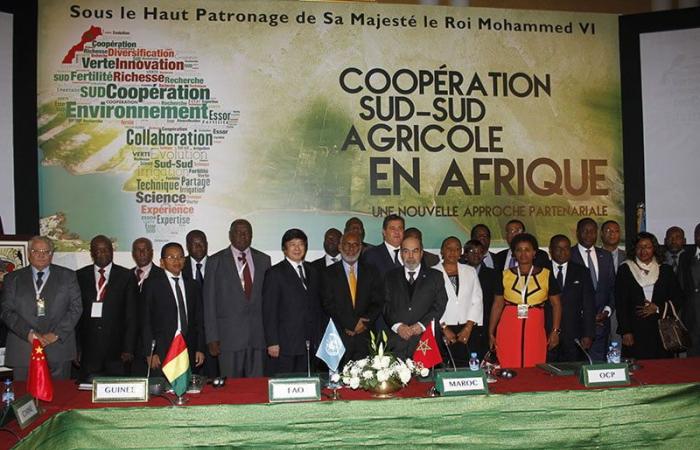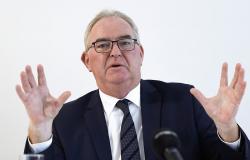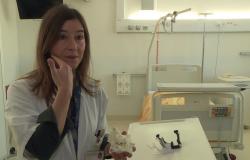Morocco, with its industrial competitiveness and its strategic position as an African hub, has all the cards in hand to benefit from this economic integration. The spectacular growth of Moroccan exports to Africa demonstrates the effectiveness of both an economic and diplomatic strategy.
By focusing on successful sectors such as automobiles, fertilizers, agri-food and the textile industry, Morocco is establishing itself as a key player in the construction of an integrated and prosperous Africa. During a session in the House of Representatives, Omar Hajji, Secretary of State to the Minister of Industry and Commerce in charge of Foreign Trade, presented impressive figures on the growth of Morocco’s exports to Africa.
The volume of Moroccan exports reached 52.7 billion dirhams in 2023, marking 100% growth in just a decade (2013-2023). A success which can be explained by a clear national strategy, combining economic dynamism, commercial openness and structuring investments on the continent.
A boom supported by royal visits and key sectors
According to Omar Hajji, Africa occupies a strategic place in the Kingdom’s economic opening policy. The numerous royal visits to African countries have given an unprecedented dynamic to Moroccan-African cooperation. These diplomatic tours made it possible to seal bilateral agreements, open markets and anchor a win-win vision that goes beyond simple commercial exchanges.
Among the key sectors that dominate Moroccan exports to the African continent, three pillars stand out: phosphate fertilizers, the automobile industry and the agri-food industry. Thanks to OCP’s global leadership, Morocco contributes to food security in Africa, particularly in Nigeria, Ethiopia and West African countries.
Morocco, now the leading vehicle producer in Africa, exports cars assembled in factories in Tangier and Kenitra. These vehicles, mainly low-cost models, perfectly meet the demand of African markets looking for affordable mobility.
Morocco’s exports of food products – fruits, vegetables, canned goods – are diversifying and responding to the continent’s demographic growth. Added to these sectors are mechanical, textile and manufacturing industries, which are gaining in competitiveness and presence on the continent.
At the same time, Morocco’s imports from Africa stood at 20 billion dirhams in 2023. They mainly focus on coal, an essential energy resource for certain local industries, as well as dates, particularly from the Saharan and plastic materials, which meet the needs of industrial sectors.
Logistical challenges and Morocco’s response
However, the study carried out by the Ministry of Industry and Commerce reveals that Morocco has an additional export potential of 120 billion dirhams, of which 10% is focused on African markets. In other words, Moroccan exporters can add 12 billion dirhams in turnover by targeting priority sectors such as automobiles, agro-industry, mechanics and textile-clothing.
Beyond trade, Morocco aims to become a major player in African investments. According to Omar Hajji, the ministerial study identifies 60 potential investment projects for Moroccan companies in Africa. These projects, which affect various industrial and infrastructure sectors, aim to consolidate the Moroccan presence on the continent while meeting the needs of partner countries. This development is part of a “win-win” logic, where the transfer of know-how from Morocco supports African economies in their modernization.
Despite this undeniable success, challenges persist. The lack of transport infrastructure constitutes a barrier to the expansion of Moroccan exports in Africa. Omar Hajji stressed the importance of logistics projects to overcome these obstacles. The future Agadir-Dakar maritime axis, intended to facilitate trade with West Africa, is an example. Other land and maritime initiatives are also in preparation to connect Morocco to new African markets.
The AfCFTA: a historic opportunity
In addition, the ministry is currently working on the establishment of an information platform dedicated to Moroccan exporters. This tool will allow companies to better identify market opportunities and the most demanded products in African countries, thus facilitating their access to these promising markets.
However, logistical challenges and untapped opportunities are reminders that there is still work to be done. With ambitious infrastructure projects, an information platform dedicated to exporters and increased engagement in the AfCFTA, Morocco is poised to transform its economic successes into sustainable continental leadership. A dynamic which will undoubtedly continue to inspire African cooperation in the years to come.
The African Continental Free Trade Area (AfCFTA), which brings together 53 countries and targets a market of 1.3 billion consumers, represents a major lever for Moroccan exporters. With suitable trade agreements, Moroccan companies are now able to capture a significant share of this growing continental market.






